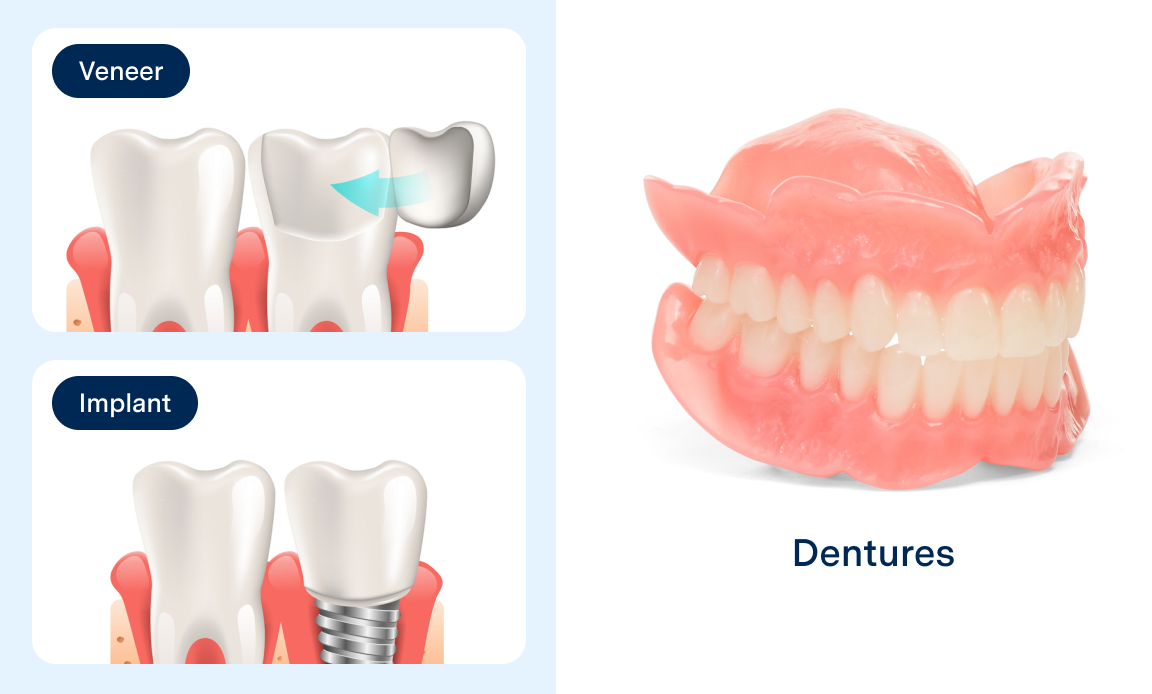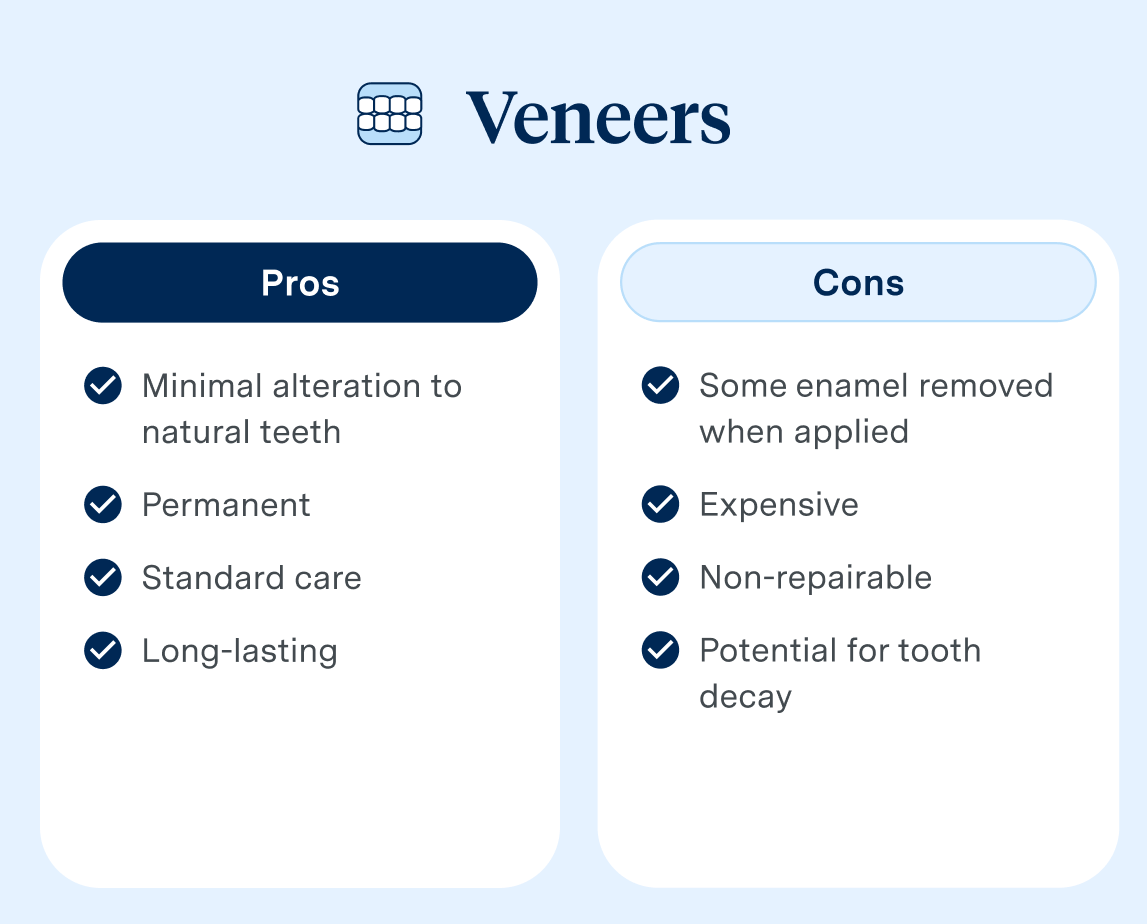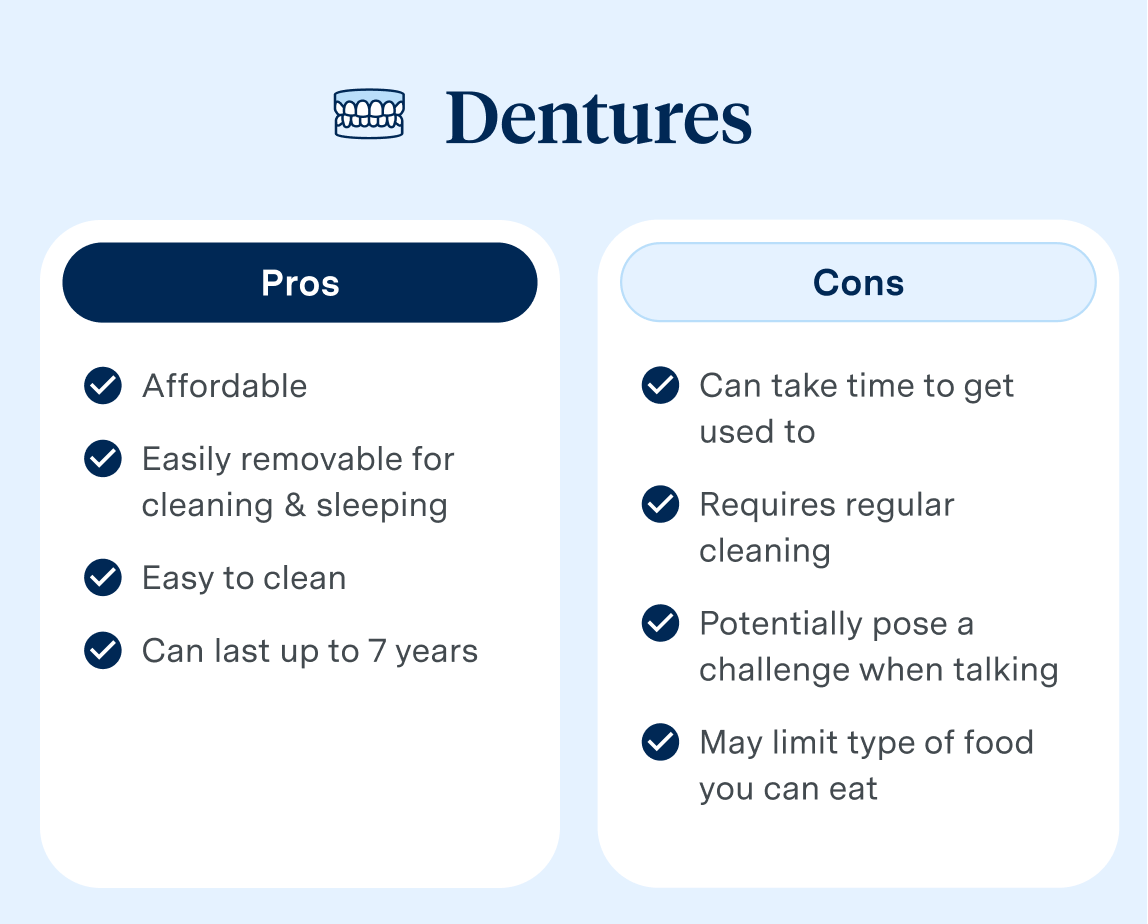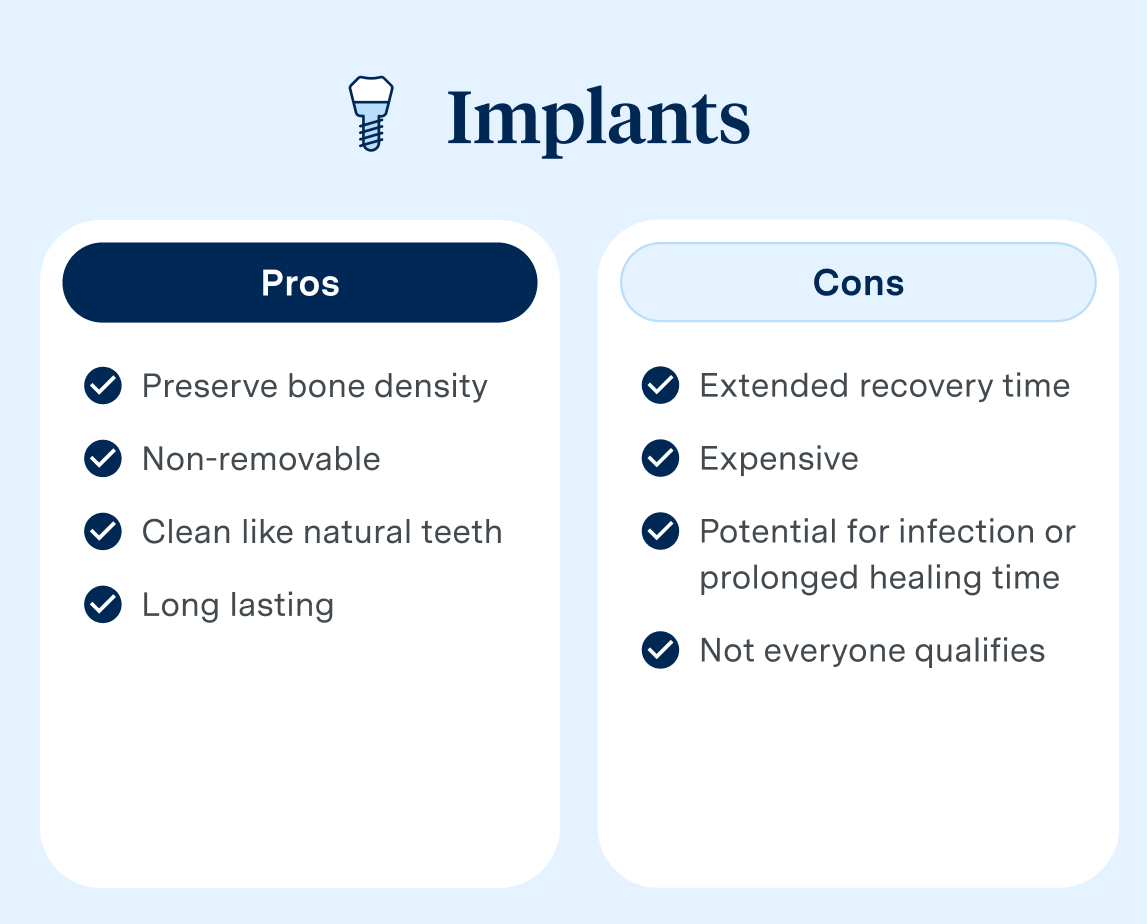Veneers vs. Dentures: Understanding the Key Distinctions
Explore the differences between dental veneers and dentures to find out which dental treatment suits your oral needs.
While both veneers and dentures transform your smile, it’s important to consider the differences when looking at veneers vs. dentures. Let’s compare the two so you can make the best choice for you.
What’s the difference between veneers and dentures?
Veneers are thin coverings that are bonded to the front surface of your teeth to improve the appearance of your smile. They conceal imperfections like chipped teeth or misalignments.
Dentures support the structure of your smile by filling in missing teeth, so you can get back to living life to the fullest. They’re a removable dental prosthetic that restores your ability to eat, speak and live with confidence again.
When choosing between veneers vs. dentures, you’ll want to evaluate the pros and cons of each. Let’s take a look at the key differences between the two so you can determine what’s right for you.
Comparing dental veneers vs. dentures
Use
Veneers are bonded to the front surface of existing teeth
Dentures replace missing teeth
Function
Veneers are primarily for cosmetic enhancement to conceal issues like discoloration, gaps, chips, misaligned teeth, or the treatment of cavities
Dentures are ideal for extensive tooth loss, restoring both function and appearance
Material
Veneers are made from porcelain, ceramic or composite resin
Dentures are made from durable acrylic or nylon resins
Types
Temporary (snap-on), composite resin bonded and lab fabricated traditional veneers
Full mouth dentures replace all teeth, while partial dentures replace several missing teeth.

Veneers vs. dentures vs. implants
When considering dentures, veneers and implants, factors like health, budget and your own personal smile goals can impact your decision. Explore the pros and cons below and see what’s right for you.

Pros and cons of veneers
Pros of dental veneers
Tooth preservation
Minimal alteration to natural teeth
Removability
Non-removable, permanently affixed
Maintenance
Standard oral hygiene care
Durability
Long-lasting with proper maintenance
Cons of dental veneers
Irreversible
Some enamel is removed when applied
Cost
Veneers can be expensive and are not always covered by dental insurance
Non-repairable
Replacement is required if veneers are damaged
Oral health risk
Potential for tooth decay under gums

Pros and cons of dentures
Pros of dentures
Affordability
Dentures are one of the most economical solutions to effectively restore your smile
Removability
Easily removable for cleaning and sleeping
Maintenance
General easy to clean as part of your routine oral hygiene care
Durability
Can last up to 7 years. Lifespan depends on quality of materials and proper maintenance
Cons of dentures
Discomfort
Can take time getting used to dentures
Maintenance
Requires regular cleaning and occasional professional adjustments
Speaking limitations
Can potentially pose a challenge when talking
Eating limitations
Dentures may limit the types of food you can eat, avoiding anything too hard or sticky

Pros and cons of implants
Pros of dental implants
Tooth preservation
Implants preserve bone density because there is minimal impact on adjacent teeth
Removability
Non-removable, firmly anchored in the jawbone
Maintenance
Clean like your natural teeth
Durability
Longest lasting, permanent solution that most closely resembles your natural smile
Cons of dental implants
Invasive procedure
Requires surgery and an extended recovery time
Cost
More expensive than other tooth-replacement options and insurance may not cover the cost
Complications
There is a potential for complications, like infection or prolonged healing time
Not everyone qualifies
Patients with certain medical conditions or insufficient bone density may not be candidates for implants
FAQs: Veneers vs. dentures
Is it better to get dentures or veneers?
The choice between dentures and veneers, whether porcelain veneers or composite veneers, depends on your specific oral health needs. Ask your dentist to see which option may be best for you.
What is the difference between permanent dentures and veneers?
Dentures replace missing teeth, while veneers enhance the aesthetics of existing teeth. Also, dentures are removable, while porcelain veneers and composite veneers are not.

Veneers vs. dentures: Which is right for you?
Your dentist knows just what your unique smile needs—contact your local Aspen Dental to determine which solution is right for you.

